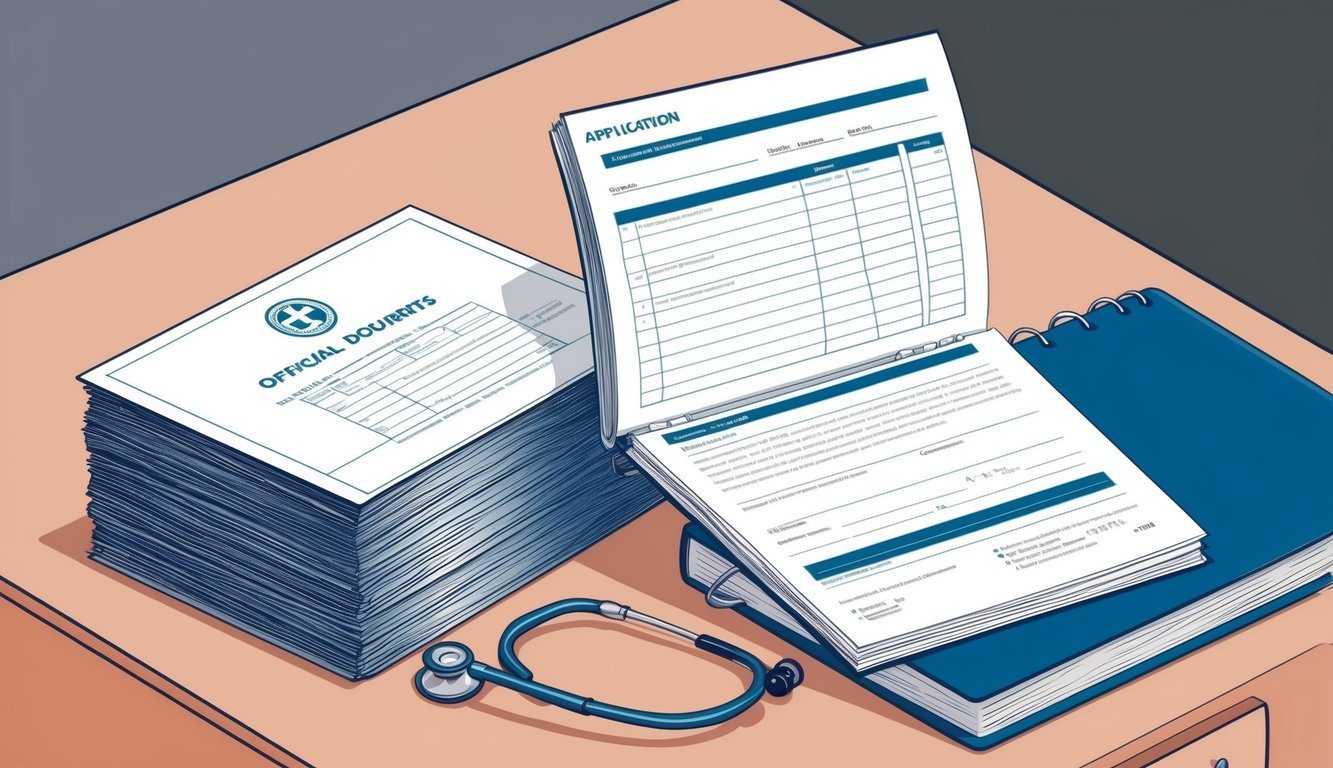Southern New Hampshire University (SNHU) offers an RN to BSN program that lets registered nurses advance their education and careers efficiently. This program is flexible, helping you earn your Bachelor of Science in Nursing online, often in as little as a year. Whether you want to deepen your nursing expertise or open doors to advanced roles in healthcare, this path can support your goals.
The program is tailored for busy professionals.
With affordable tuition and a supportive learning environment, you can balance work and study without overwhelming stress.
As you progress, the skills and knowledge you gain will prepare you for greater responsibilities within the nursing profession.
Choosing SNHU’s RN to BSN program also means you are enrolling in an accredited institution that values quality education.
Understanding the requirements and opportunities available to you can be the first step toward a rewarding nursing career.
Key Takeaways
- SNHU’s RN to BSN program can be completed online in as little as a year.
- The program is designed for working nurses seeking career advancement.
- SNHU is an accredited institution providing quality education in nursing.
Exploring SNHU’s RN to BSN Program
The RN to BSN program at Southern New Hampshire University (SNHU) is designed for registered nurses who want to advance their education and career.
This program focuses on evidence-based practice and prepares you for roles that require a bachelor’s degree in nursing.
Program Overview
SNHU offers an online RN to BSN program that can be completed in as little as one year.
This flexibility is ideal for busy professionals balancing work and personal life.
The curriculum is tailored to help you build on your existing knowledge and skills.
The program requires the completion of 30 credits for the BSN.
You may transfer up to 90 credits, making it easier to meet your degree requirements.
The emphasis on nursing education is supported by dedicated faculty who provide guidance and support throughout your studies.
Curricular Components
The curriculum consists of core courses that cover vital topics in nursing.
These courses include:
- Nursing Leadership and Management: Prepares you for supervisory roles.
- Community Health Nursing: Focuses on population health and community outreach.
- Evidence-Based Practice: Teaches you how to apply research to improve patient care.
You will also complete clinical experiences to apply your learning in real healthcare settings.
This hands-on training enhances your skill set and prepares you for various roles in the healthcare system.
Online Learning Environment
SNHU’s online learning environment provides a flexible and accessible platform for students.
You can attend classes anytime and anywhere, allowing you to manage your studies alongside work and family commitments.
The program incorporates interactive elements such as discussion boards, video lectures, and group projects.
This approach fosters collaboration and engagement with peers and instructors.
You will also have access to resources like academic advising and career services, ensuring that you are well-supported throughout your educational journey.
This comprehensive online experience prepares you for success in your nursing career.
Admission Requirements and Application Process

To apply for the RN to BSN program at Southern New Hampshire University (SNHU), you need to meet specific eligibility criteria and understand the application process.
This section provides detailed information on what you need to know to successfully submit your application and how to maximize your transfer credits.
Eligibility Criteria
To apply for the RN to BSN program, you must meet several requirements.
First, you should hold a valid and unencumbered registered nurse (RN) license.
This is essential for admission, as it confirms your qualifications.
Additionally, you need to have completed a diploma or associate degree in nursing from an accredited program.
A cumulative GPA of at least 2.5 is typically required.
If you graduated from a nursing program within three months of your application, you may still qualify if other requirements are met.
Understanding these criteria can help you ensure a successful application.
How to Apply
Applying to the RN to BSN program at SNHU is a straightforward process.
Start by submitting your online application, which takes about five minutes.
You do not need to submit test scores or pay any application fees.
Once your application is submitted, an Admission Counselor will reach out to discuss your next steps and answer any questions you may have.
Make sure to complete an attestation form during the application process.
For detailed information, you can contact the admissions team at 888.327.SNHU.
Transfer Credits
If you have previous nursing coursework, you may be able to transfer credits into the RN to BSN program.
SNHU’s program allows you to transfer up to 45 credits based on your RN license.
You can also transfer additional credits from other academic institutions.
So, it’s beneficial to gather all relevant transcripts and information about your prior education.
This will help you maximize the credits you can transfer, potentially shortening the time it takes to complete the program.
For more information about transfer credits and how they are evaluated, you can consult with an Admission Counselor.
Funding Your Education

Navigating the costs of your RN to BSN program at SNHU is vital for your financial planning.
Understanding tuition, available financial aid, and potential discounts can help you manage expenses effectively.
Tuition and Fees
The tuition for the RN to BSN program at SNHU is typically around $320 per credit hour.
The total number of credits required for graduation is 120, which translates to an estimated total cost of $38,400.
It’s essential to account for additional fees, such as registration and course materials.
You may also want to factor in costs for any clinical requirements you’ll need to meet.
Be sure to check the university’s official website for the most current pricing and details.
Financial Aid and Scholarships
A variety of financial aid options are available to assist you in funding your education.
You can complete the FAFSA to determine your eligibility for federal loans or grants.
In addition to federal aid, SNHU offers both need-based and merit-based scholarships. Scholarships can significantly reduce your out-of-pocket expenses.
For example, the NLN scholarship awards funds specifically for nursing students.
Always keep an eye on deadlines and application procedures to maximize your funding options.
More information about financial aid can be found on the SNHU financial aid page.
Tuition Discount Opportunities
SNHU provides several tuition discount opportunities for eligible students.
For instance, if you are a registered nurse working with a partner organization, you may qualify for a tuition discount.
Additionally, active military members and veterans might receive financial benefits that can help lower tuition costs.
Don’t forget to check for any workplace tuition reimbursement programs, as many employers offer such benefits to their employees.
This can significantly decrease the financial burden of your education.
Career Outcomes and Professional Growth

Completing the RN to BSN program at SNHU can lead to various career advancements and educational opportunities.
You can expect significant job growth in the nursing field, along with options for further education that can enhance your career potential.
Job Growth and Opportunities
The demand for registered nurses continues to rise.
According to the U.S. Bureau of Labor Statistics, employment for nurses is projected to grow 6% from 2021 to 2031.
This growth translates to approximately 195,400 openings each year, driven by an aging population and a greater focus on health care.
With a BSN, you will qualify for a wider range of positions, including:
- Clinical Nurse Leader
- Nurse Educator
- Nurse Executive Leadership
Having a BSN can also lead to leadership roles and specialized nursing positions that may require further education.
Your advanced degree increases your competitiveness in the job market, making you a more desirable candidate for various roles.
Continued Education: Accelerated RN to MSN Pathway
Transitioning to an RN to MSN pathway offers even more professional growth opportunities.
This accelerated program allows you to build on your BSN education and earn your Master of Science in Nursing in less time.
The MSN degree opens doors to advanced positions such as:
- Nurse Practitioner
- Clinical Nurse Specialist
- Nurse Administrator
These roles often come with higher salaries and more responsibilities.
The five specialty tracks available in the RN to MSN program allow you to tailor your education to meet your career goals effectively.
By pursuing this pathway, you will not only enhance your nursing skills but also position yourself for future advancements.
Accreditation and Quality Assurance
Accreditation is essential for ensuring the quality and credibility of educational programs.
When choosing a nursing program, it’s important to understand the accrediting bodies and how they influence your education and future career.
Commission on Collegiate Nursing Education
The Commission on Collegiate Nursing Education (CCNE) is a key accrediting agency for nursing programs.
It focuses on promoting quality and integrity in nursing education.
CCNE evaluates programs based on several criteria, including:
- Mission and Goals: Clear objectives that align with the program’s purpose.
- Curriculum: A relevant curriculum that prepares you for nursing practice.
- Faculty Qualifications: Experienced faculty committed to teaching and learning.
- Student Support: Resources that help you succeed, including advising and mentorship.
Programs accredited by CCNE must undergo regular reviews, ensuring ongoing quality improvement.
Graduating from an accredited program can enhance your job prospects and ensure you meet licensure requirements.
New England Commission of Higher Education
The New England Commission of Higher Education (NECHE) plays a broader role in accrediting institutions, including Southern New Hampshire University (SNHU).
NECHE ensures that colleges and universities maintain high standards.
Key points about NECHE accreditation include:
- Institutional Assessment: Regular reviews of institutions to meet educational standards.
- Quality Assurance: Encouragement of improvement in academic programs and services.
- Public Accountability: Assurance that institutions provide valuable education to students.
NECHE’s accreditation signifies that SNHU meets rigorous standards, making your RN to BSN program valid and respected.
You can feel confident in the quality of your education as you progress in your nursing career.
Frequently Asked Questions

This section provides specific answers to common inquiries about the SNHU RN to BSN program.
Here you will find information on admission requirements, costs, completion time, and the benefits of earning a BSN.
What are the admission requirements for the SNHU RN to BSN program?
To enter the SNHU RN to BSN program, you must have an unencumbered RN license.
This license can earn you 45 transfer credits.
You also need to have completed an associate degree in nursing or a diploma program.
Additionally, some general education credits may be required.
How much does the SNHU RN to BSN program typically cost?
The cost of the SNHU RN to BSN program can vary.
Tuition is usually charged per credit hour.
As of recent data, the estimated cost is around $320 per credit hour.
This does not include additional fees for books or materials.
Can the SNHU RN to BSN program be completed entirely online?
Yes, you can complete the SNHU RN to BSN program entirely online.
This flexibility allows you to study at your own pace without needing to attend on-campus classes.
How long does it typically take to complete the SNHU RN to BSN program?
You can complete the SNHU RN to BSN program in as little as one year.
The actual time may vary based on your course load and transfer credits.
Many students find that they can balance work and studies effectively.
What are some of the experiences of graduates from the SNHU RN to BSN program?
Graduates of the SNHU RN to BSN program often report positive experiences.
Many highlight the supportive online community and the helpfulness of advisors.
Some graduates also appreciate the ability to take graduate-level courses while completing their BSN.
What are the distinct advantages of obtaining a BSN for registered nurses?
Earning a BSN can provide several advantages for registered nurses.
It may open doors to leadership positions and advanced clinical roles.
Additionally, a BSN can enhance job prospects and may lead to higher salaries.

